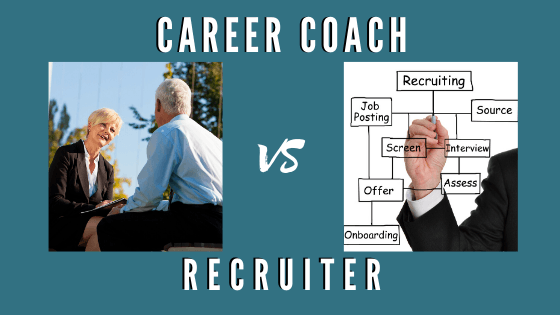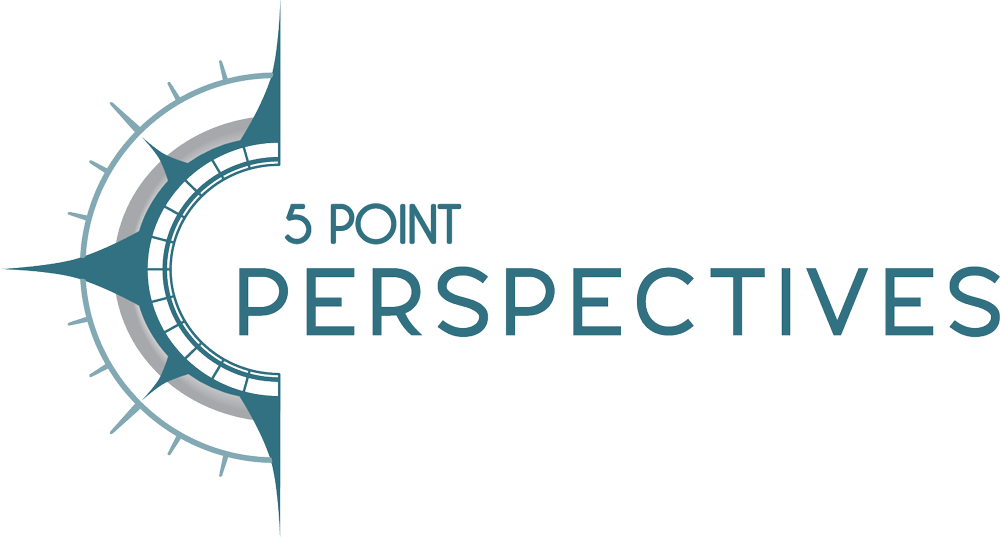Blog Layout
Career Coach vs Recruiter - What is the Difference?
Feb 05, 2021
What then, are the key differences
between these two professionals?

The main difference is a career coach works for the individual job hunter while recruiters work for
companies. Career coaches help their individual clients to find jobs while recruiters help the companies
find employees to fill open positions. When you look at your career as a return on the investment of
education and training, hiring a career coach to help you land that first job out of school or make a
smart mid career transition makes good financial sense.
Career coaches are paid for by their clients and are experts in skills such as strategic career planning,
resume and cover letter creation, job search, negotiation and interviewing. While you may only search
for a new gig or switch careers a handful times in your life, these professionals are up to date with
current hiring practices because they are constantly working to help job seekers and executives. Career
coaches assist their clients in identifying personal goals, developing leadership skills and planning career
moves; your career “sweet spot”. They also help you gain career confidence, clarity and change. They
inspire, help you pitch yourself in a compelling manner, highlight and promote your strengths and
minimize your weaknesses. They ride the roller coaster with you, celebrate your successes and move
you through setbacks. They believe in you and have your back no matter what and hold you
accountable to yourself. Career Coaches are the ones who pour not only their skills into their work, but
also their hearts.
Typically included in the total cost are resume revisions, LinkedIn training, job search
strategy, career assessments and interview coaching. They look at the entire process; the big picture.
Coaches break down the common, limiting career-seeking paradigms that will keep you in a dis-
empowered frame of mind, and have you shattering the box of options. Rather than considering a job
that you’re worthy of, coaches look at opportunities that are worthy of YOU and your passions. Coaches
piece together what you’ve done, look at your resume and experience, discuss what you would like to
do and identify your internal passions and desires.
Recruiters on the other hand, are paid by the employer or company to find suitable candidates. Their
job, therefore, is to help an organization fill a vacancy, not to help you find a job or gain career direction.
They actively seek out candidates that many employers are looking for and create a database of
prospects to call on when an opening arises. They support the companies that have hired them and
receive a fee for filling the open role with a suitable candidate. Recruiters will typically want to present
you to an employer for the same type of job you have held most recently, consistently and successfully
at the top of your game, definitely not when you are lost or stuck or need guidance in your career.
In a nutshell, I have broken down below when to consider a recruiter and when to consider a career
coach:
Hire a recruiter when you:
know exactly what type of position and job title you are looking for
already have a solid resume, cover letter and LinkedIn profile
are excellent at interviewing
have a well defined, desired skill set
Hire a career coach when you:
are unhappy and want more out of your career
don’t know where you’re stuck in finding a job, but you know you’re stuck
require help with your resume, cover letter, interviewing skills and LinkedIn profile
know what type of career you want, but don’t know how to get it
don’t know what kind of career you want
know what you want but don’t have the experience
have a secure job but want to be promoted and/or make more money
require a full social media review to identify any posts of concern which could impact your
future employment prospects
have gone through interviews and phone screens but don’t receive job offers
want to pursue your passion but don’t know how
need assistance with the entire job process
don’t know who the right people are to talk to in order to get the job
are willing make an investment in yourself and take your career seriously
Depending on what you are looking to accomplish, one or both may come into play. As part of the
programs I offer, I encourage my career coaching clients to also engage a recruiter to ensure a holistic
strategy, but most career coaches typically do 95% more than most recruiters.
If you feel you would like to work with a career coach, call me for a complimentary discovery call to
discuss our programs. Get back you yourself again, start here… www.5pointperspectives.com
Questions?
Contact Us
Thank you for contacting us.
We will get back to you as soon as possible.
We will get back to you as soon as possible.
Oops, there was an error sending your message.
Please try again later.
Please try again later.
